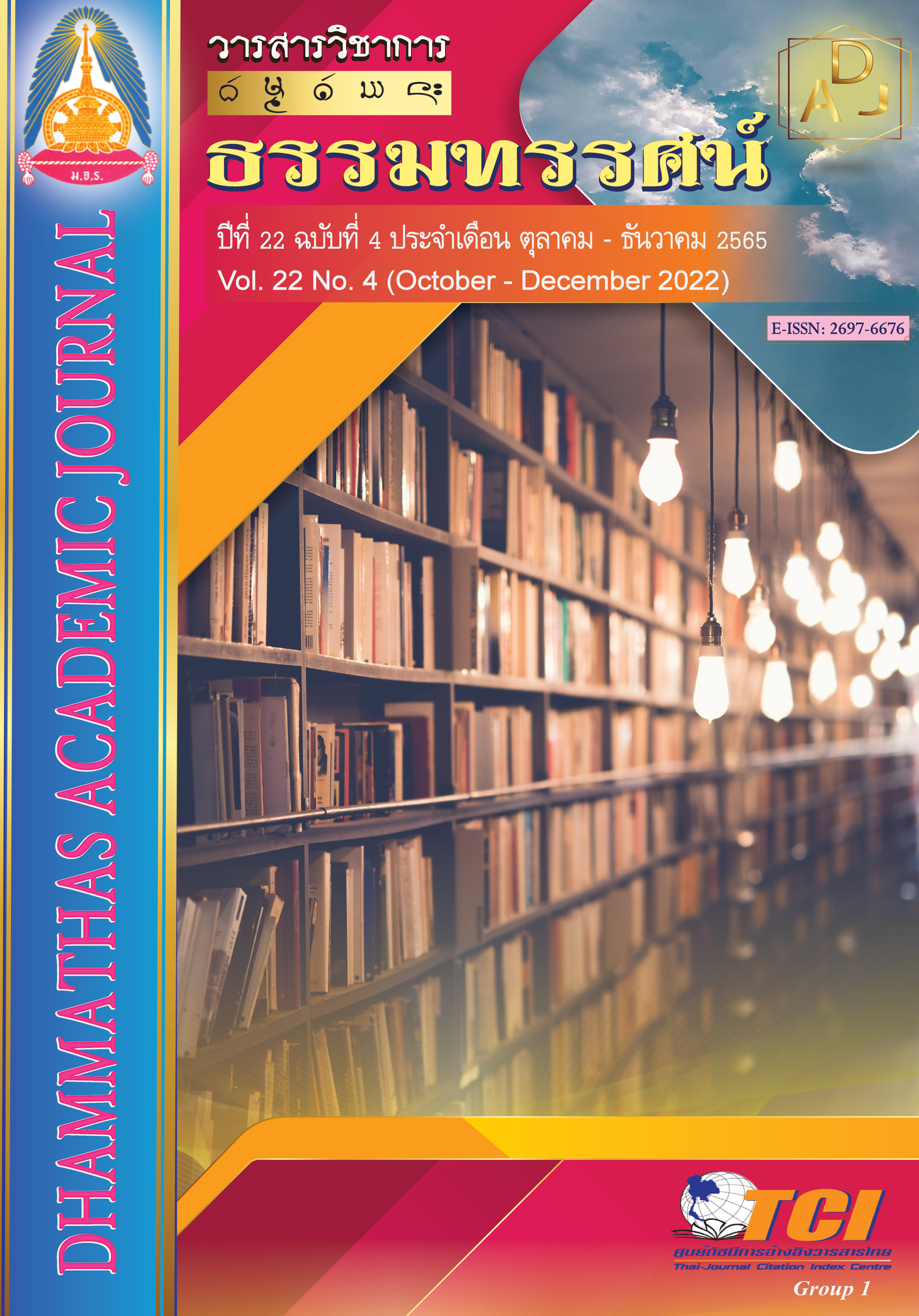Activities Development of 10 National Health Recommendations to Promote Health Literacy of Primary School Students
Main Article Content
Abstract
The objectives of this research were to develop activities based on 10 National health recommendations which promote health literacy and to study the result of health literacy after using the activities based on 10 National health recommendations. This study is an action research. A sample of the study selected by cluster sampling method was 368 students studying in grades 1-3 in the second semester of the academic year 2021 at Ban Wang Deang School, Amphur Po Thale, Pichit province. The data were collected by the 10 activities based on 10 national health recommendations that promote health literacy of primary school students, health literacy test and assessment form of self-management skills. The data were analyzed by mean, standard deviation, and the T-test posttest the posttest results compared with defined criteria.
The results of the research showed that:
1. The 10 national health recommendations developed by the researchers consisted of 10 activities, 2 hours each, totaling 20 hours which are, 1) Knowing clean, disease-free, 2) Beautiful smile, bright smile, keep taking care, 3) Washing hands correctly can prevent viruses, 4) Eating usefully cannot be harmful to health, 5) Refrain from additions, life is safe, 6) My family loves each other sweetly, 7) Don’t be reckless, far from accidents, 8) Exercise a day, bright mind, 9) Good mood because I'm happy and 10) A livable society, Everyone knows their job. All activities focus on 4 stages which are: 1) Preparation, 2) teamwork, 3) Application, 4) Follow-up. The overview assessment results of the appropriateness of activities was at the high level.
2. Grades 1-3 students who study using ten national health recommendations activities that promote health literacy have a health literacy skill score after class higher than the criteria of 70 percent with statistical significance at the level of .01 and the average of self-management skills was at the high level.
Article Details

This work is licensed under a Creative Commons Attribution-NonCommercial-NoDerivatives 4.0 International License.
เพื่อให้เป็นไปตามกฎหมายลิขสิทธิ์ ผู้นิพนธ์ทุกท่านต้องลงลายมือชื่อในแบบฟอร์มใบมอบลิขสิทธิ์บทความ ให้แก่วารสารฯ พร้อมกับบทความต้นฉบับที่ได้แก้ไขครั้งสุดท้าย นอกจากนี้ ผู้นิพนธ์ทุกท่านต้องยืนยันว่าบทความ ต้นฉบับที่ส่งมาตีพิมพ์นั้น ได้ส่งมาตีพิมพ์เฉพาะในวารสาร วิชาการธรรม ทรรศน์ เพียงแห่งเดียวเท่านั้น หากมีการใช้ ภาพหรือตารางของผู้นิพนธ์อื่นที่ปรากฏในสิ่งตีพิมพ์อื่นมาแล้ว ผู้นิพนธ์ต้องขออนุญาตเจ้าของลิขสิทธิ์ก่อน พร้อมทั้ง แสดงหนังสือที่ได้รับการยินยอมต่อบรรณาธิการ ก่อนที่บทความจะได้รับการตีพิมพ์References
กองสุขศึกษา. (2551). การเสริมสร้างและประเมินความรอบรู้ด้านสุขภาพและพฤติกรรมสุขภาพ.กรุงเทพมหานคร: กรมสนับสนุนการบริการสุขภาพ.
เดชดนัย จุ้ยชุม, เกษรา บ่าวแช่มช้อย และศิริกัญญา แก่นทอง. (2559). การพัฒนาผลสัมฤทธิ์ทางการเรียนเรื่อง ทักษะการคิดของนักศึกษาในรายวิชาทักษะการคิด (Thinking Skills) รหัสวิชา 11-024-112 ภาคเรียนที่ 1 ปีการศึกษา 2558 ด้วยการเรียนรู้แบบมีส่วนร่วม (Active Learning). วารสารมหาวิทยาลัยนราธิวาสราชนครินทร์ สาขามนุษยศาสตร์และสังคมศาสตร์, 3(2), 47-57.
ไตรลักษณ์ ภิญโญ. (2560). การศึกษาผลสัมฤทธิ์ทางการเรียนเรื่อง การปฏิบัติตนตามสุขบัญญัติ แห่งชาติแห่งชาติของนักเรียนชั้นประถมศึกษาปีที่ 1 จากการจัดการเรียนรู้โดยใช้แบบฝึก ทักษะการคิดวิเคราะห์. (วิทยานิพนธ์ศึกษาศาสตรมหาบัณฑิต). ปทุมธานี: มหาวิทยาลัยนอร์ทกรุงเทพ.
ทิศนา แขมมณี. (2546). วิธีสอนสำหรับมืออาชีพ. (พิมพ์ครั้งที่ 4). กรุงเทพฯ: จุฬาลงกรณ์มหาวิทยาลัย.
ปรียานุช พรหมภาสิต. (2559). คู่มือการจัดการเรียนรู้ “Active learning (AL) for HuSo at KPRU”. กําแพงเพชร: มหาวิทยาลัยราชภัฏกําแพงเพชร.
สุชาดา แก้วพิกุล. (2555). การพัฒนากิจกรรมคณิตศาสตร์ที่ใช้การจัดการเรียนการสอนอย่างกระตือรือร้น โดยเน้นการเรียนเป็นคู่ร่วมกับการบริหารสมอง เพื่อส่งเสริมผลสัมฤทธิ์ทางการเรียนคณิตศาสตร์และความสุขในการเรียนของนักเรียนชั้นมัธยมศึกษาปีที่ 2 ที่มีผลสัมฤทธิ์ทางการเรียนคณิตศาสตร์ต่ำ. (วิทยานิพนธ์การศึกษามหาบัณฑิต). กรุงเทพฯ: มหาวิทยาลัยศรีนครินทรวิโรฒ.
อรวรรณ นามมนตรี. (2561). ความรอบรู้ด้านสุขภาพ (Health literacy). วารสารทันตาภิบาล, 29(1), 122-128.

